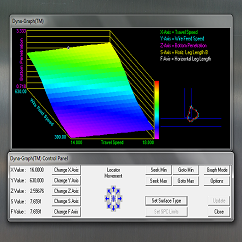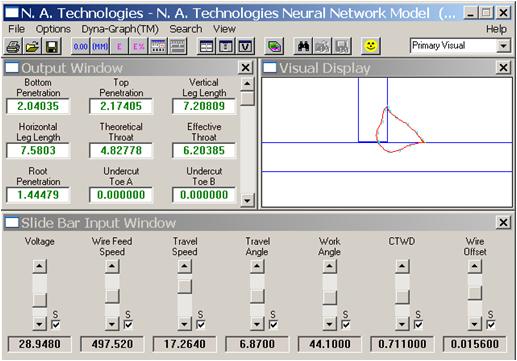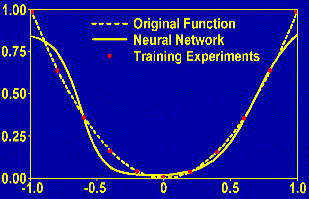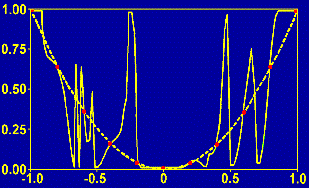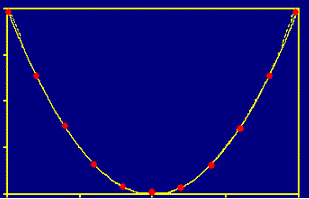Process Measurement, Modelling and Optimization
|
Dynagraph™ 3D visualization tool included in our standard P/NA3™ interface.
Standard Slidebar Interface with Weld Cross-section Visualization
Delivered standard with any P/NA3™ model.
|
P/NA3™ Custom Process Models and Standard Interface
Neural Networks are an artificial intelligence approach which produces accurate models of complex, non-linear physical phenomena without requiring knowledge of the underlying properties. The P/NA3 Neural Network is a proprietary algorithm of EnergynTech which produces excellent models. The P/NA3 neural network architecture is capable of modeling countless non-linear manufacturing processes. Your model will be delivered in our standard interface which includes the Dynagraph™ 3D visualization tool, a standard slide bar interface to experiment with the dynamic interactions of your process, a visual representation (if available) and an extensive search capability. Additionally, custom visuals can be added. If you have any questions of how our models and processes can help you please Contact Us.
|
3DWeld™ Visualization Tool
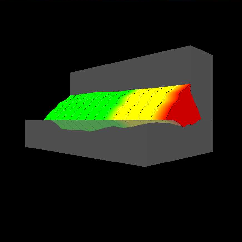
3D visualization tool for standard weld cross-section graphics included in our standard P/NA3™ interface. |
The P/NA3 Advantage |
||
|---|---|---|
|
Diagram showing a comparison between a back propagation neural network trained to 20% error and the actual underlying function from which the training points have been derived.
|
Diagram showing a comparison between a back propagation neural network trained to 4% error and the actual underlying function from which the training points have been derived. This neural network exhibits all of the symptoms of the classic “over training” or loss of generalization typical of back propagation neural networks.
|
Diagram showing a comparison between a P/NA3 neural network trained to 1% error and the actual underlying function from which the training points have been derived. This neural network does not exhibit any of the symptoms of the classic “over training” or loss of generalization typical of back propagation neural networks
|
Other solutions in this area that you might be interested in:
- VirtualWelder™ Welder Training System
- NAMeS™ Weld Measurement System for cross-section measurement
- ArcSentry™ Weld Monitoring and Quality Control

